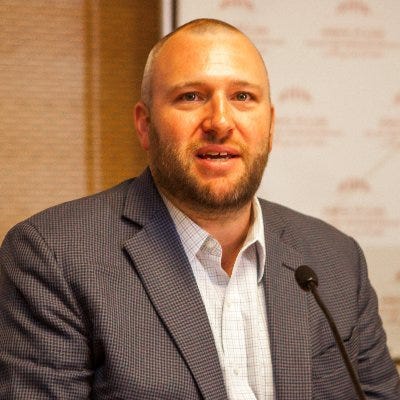Middle East 101, Week XIV
Gabi Mitchell will be joining us to talk about the difference between studying history and living through it. (Please note schedule change!)
This week, Gabi Mitchell, whose work you’ve read here many times, will be joining our discussion. Gabi is a policy fellow at the Mitvim Institute who writes about Israel and the Middle East, among other places, at Invisible Boundaries. But since October 7, he’s spent more time than he’d ever imagined in a Merkava 3 tank with his IDF reserve unit.
🚨↪︎NOTE: To accommodate his schedule, we’ll be meeting half an hour later than usual, at 1700 Paris time.
The theme, this week, “is a simple one,” he writes.
But I hope it will challenge your students to wrestle with the differences between the political and historical understanding of geopolitics and conflict and the daily realities that Israelis and Palestinians face.
To that end, he’d like you to prepare by reading the following. (The reading is very light this week: I just read it all and watched the videos; it took me half an hour.)
The Empathy Gap by Ksenia Svetlova.
How trauma drives the politics of the Israeli-Palestinian conflict, by Khaled Tiab.
Back from the war, these IDF soldiers demand new leadership. (I’ve used a gift link, so everyone should be able to access it. Please be sure to watch the video, too.)
Israeli reservists fight in Gaza but question what comes after the war.
And he also asked that you watch this video:
Because Gabi is an especially interesting guest, the discussion is open to anyone who’s done this week’s reading. The Zoom link is below. But priority in the discussion goes to our regular students, the ones who’ve been coming to class from the start.
🚨↪︎NOTE AGAIN: To accommodate his schedule, we’ll be meeting a half hour later than usual: We’ll be meeting at 1700 Paris time.
Optional reading: Here are a few of the articles we’ve published by Gabi. Many of you will have read them already, I presume, but this will jog your memory:
Biden in the Middle East: Biden wants to reassert US moral leadership in the world. Is that even possible under the current circumstances?
The Kingmaker: A formerly obscure Islamist dentist becomes the man who can make Bibi’s dreams come true. Or perhaps those of Bibi’s rivals.
The Abyss: There is a rift between those who believe that Israel unique is defined by its democratic character those who believe it is defined by its Jewish character.
Have a look, too, at Invisible Boundaries and the articles he’s written recently:
Optional listening: On October 4, 2023, Gabi announced the inauguration of a podcast to accompany his newsletter. For obvious reasons, the first episode has so far been the only episode. But I fervently hope there will be many more, soon.
The inaugural episode treats Israeli-Saudi normalization. It remains extremely relevant. If you have the time, listen to it to remind yourself where we were, exactly, before October 7. (It’s a bit spooky to listen to it now because we know what’s coming.)
🚨↪︎NOTE ONE MORE TIME: To accommodate his schedule, we’ll be meeting a half hour later than usual: We’ll be meeting at 1700 Paris time.
(What do you think: Will at least one student forget and show up at 1630 Paris time? If so, it’s no catastrophe—just wait a half an hour.)
Keep reading with a 7-day free trial
Subscribe to The Cosmopolitan Globalist to keep reading this post and get 7 days of free access to the full post archives.






